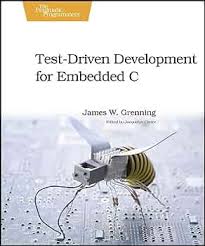Mastering the Role of a Senior Software Development Engineer: A Guide to Success
The Role of a Senior Software Development Engineer
A senior software development engineer plays a crucial role in the software development lifecycle. With years of experience and expertise in programming, system design, and project management, these professionals are instrumental in delivering high-quality software solutions.
Responsibilities
Senior software development engineers are responsible for:
- Leading and participating in the design and implementation of complex software systems.
- Collaborating with cross-functional teams to define, design, and ship new features.
- Mentoring junior developers and providing technical guidance.
- Performing code reviews to ensure code quality and adherence to best practices.
- Identifying and resolving technical issues proactively.
Skills Required
To excel in this role, a senior software development engineer should possess:
- Proficiency in multiple programming languages such as Java, C++, Python, or JavaScript.
- Strong understanding of data structures, algorithms, and object-oriented design principles.
- Experience with version control systems like Git and collaborative tools like Jira.
- Excellent problem-solving skills and attention to detail.
- Effective communication skills for team collaboration and client interactions.
Career Growth
Becoming a senior software development engineer is often a milestone in one’s career. It signifies not only technical expertise but also leadership abilities. Senior engineers may further progress into roles such as tech lead, engineering manager, or architect as they continue to hone their skills and take on more challenging projects.
Conclusion
In conclusion, senior software development engineers are vital assets to any tech team. Their combination of technical prowess, problem-solving capabilities, and leadership qualities make them key contributors to the success of software projects. As technology continues to evolve rapidly, the role of senior engineers will remain essential in driving innovation and delivering cutting-edge solutions.
9 Essential Tips for Excelling as a Senior Software Development Engineer
- Stay updated with the latest technologies and trends in software development.
- Focus on continuous learning and skill improvement to stay competitive in the field.
- Practice good coding habits such as writing clean, efficient, and maintainable code.
- Collaborate effectively with team members and communicate clearly about project requirements and progress.
- Take ownership of your work and strive for high quality in all aspects of software development.
- Engage in problem-solving and critical thinking to tackle complex technical challenges.
- Prioritize tasks effectively to meet deadlines and deliver projects on time.
- Seek feedback from peers and mentors to grow professionally and refine your skills.
- Stay adaptable and open-minded when faced with new technologies or methodologies.
Stay updated with the latest technologies and trends in software development.
It is crucial for senior software development engineers to stay updated with the latest technologies and trends in software development. By continuously learning and adapting to new tools, languages, and methodologies, they can enhance their skills, remain competitive in the industry, and contribute effectively to innovative projects. Keeping abreast of advancements in technology also allows senior engineers to make informed decisions, implement best practices, and drive the evolution of software solutions to meet the ever-changing demands of the digital landscape.
Focus on continuous learning and skill improvement to stay competitive in the field.
To excel as a senior software development engineer, it is crucial to prioritize continuous learning and skill enhancement to remain competitive in the ever-evolving field of technology. By staying abreast of the latest trends, tools, and techniques, senior engineers can not only maintain their expertise but also adapt to new challenges and opportunities that arise in the industry. Embracing a mindset of lifelong learning ensures that senior software development engineers can deliver innovative solutions and contribute effectively to their teams and projects.
Practice good coding habits such as writing clean, efficient, and maintainable code.
It is crucial for senior software development engineers to practice good coding habits, such as writing clean, efficient, and maintainable code. By adhering to these principles, engineers not only ensure that their code is easy to understand and modify but also contribute to the overall quality and longevity of the software they develop. Clean code reduces complexity, enhances readability, and makes collaboration with team members smoother. Efficiency in coding leads to optimized performance and resource utilization. Additionally, maintainable code allows for easier troubleshooting, updates, and scalability of the software system over time. Embracing these coding habits is key to achieving success in the ever-evolving field of software development.
Collaborate effectively with team members and communicate clearly about project requirements and progress.
Effective collaboration and clear communication are essential for a senior software development engineer to succeed in their role. By working closely with team members and openly discussing project requirements and progress, senior engineers can ensure that everyone is on the same page and working towards a common goal. Clear communication helps prevent misunderstandings, promotes transparency, and fosters a positive team dynamic where ideas can be shared freely. This collaborative approach not only enhances the quality of the final product but also boosts team morale and productivity.
Take ownership of your work and strive for high quality in all aspects of software development.
Taking ownership of your work and striving for high quality in all aspects of software development are essential traits for a senior software development engineer. By taking ownership, you demonstrate accountability and commitment to the success of the project. This includes not only writing clean and efficient code but also actively participating in design discussions, providing valuable insights, and ensuring that the final product meets the highest standards. Embracing this mindset not only leads to better outcomes but also fosters a culture of excellence within the team, ultimately contributing to the overall success of the software development process.
Engage in problem-solving and critical thinking to tackle complex technical challenges.
Engaging in problem-solving and critical thinking is essential for senior software development engineers to effectively tackle complex technical challenges. By approaching problems with a strategic mindset and analytical reasoning, these professionals can identify root causes, explore innovative solutions, and make informed decisions that drive the development of robust software systems. Embracing a proactive problem-solving approach not only enhances their technical skills but also fosters continuous learning and growth in their role as key contributors to successful software projects.
Prioritize tasks effectively to meet deadlines and deliver projects on time.
Effective task prioritization is a crucial skill for senior software development engineers to ensure timely project completion. By strategically organizing tasks based on their importance and deadlines, engineers can focus on critical aspects of the project, allocate resources efficiently, and avoid bottlenecks in the development process. Prioritizing tasks enables senior engineers to manage their time effectively, meet project milestones, and deliver high-quality software solutions within the specified timeframe.
Seek feedback from peers and mentors to grow professionally and refine your skills.
Seeking feedback from peers and mentors is a valuable practice for senior software development engineers looking to grow professionally and refine their skills. Constructive feedback provides insights into areas of improvement, highlights strengths, and offers different perspectives on problem-solving approaches. By actively soliciting feedback, senior engineers can identify blind spots, enhance their technical abilities, and develop strong communication and collaboration skills. Embracing feedback as a tool for continuous learning and self-improvement can lead to personal growth and increased effectiveness in delivering high-quality software solutions.
Stay adaptable and open-minded when faced with new technologies or methodologies.
When aiming to excel as a senior software development engineer, it is crucial to maintain adaptability and an open-minded approach when encountering new technologies or methodologies. Embracing change and being willing to learn and explore unfamiliar tools or techniques can enhance one’s problem-solving abilities and keep skills relevant in the ever-evolving tech landscape. By staying adaptable and open-minded, senior engineers can effectively navigate challenges, drive innovation, and contribute meaningfully to the success of software projects.




